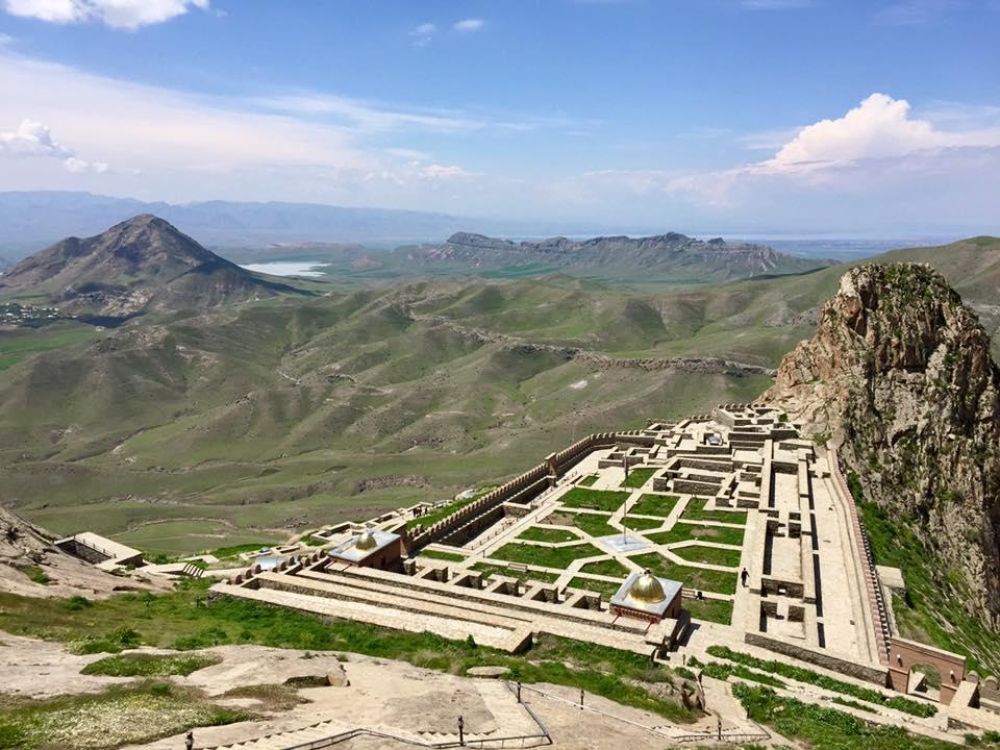

Nakhchivan, an autonomous republic within Azerbaijan, is a region steeped in history and allure. Its remote location, locked away by Armenia, Iran, and Turkey, has lent it an air of mystery and preserved its cultural heritage. This ancient cradle of civilization has been somewhat off the beaten tourist track, but its historical significance and natural beauty are undeniable.
Tourism in Nakhchivan traces back to the Soviet era when travelers began exploring the region's unique offerings. It has always been a place of intrigue for those interested in the convergence of Eastern and Western cultures, as well as those seeking to uncover lesser-known historical narratives. While the Soviet Union promoted domestic tourism, it was only after Azerbaijan's independence in 1991 that Nakhchivan began to wade into the waters of international tourism.
Nakhchivan houses a treasure trove of archeological sites, ancient mosques, and mausoleums which stand testament to its deep historical roots. The Mausoleum of Momine Khatun with its intricately decorated facade and the 13th-century Garabaghlar Mausoleum are emblematic of the region's rich Islamic architecture and are major pulls for history buffs and architecture enthusiasts. The ancient city of Julfa, with its UNESCO-listed petroglyphs, reveals the early human developments in this area and garners significant tourist interest.
The shift towards eco-tourism and wellness has placed Nakhchivan on the map for a niche group of travel enthusiasts. With its mineral-rich waters, renowned for their curative properties, resorts such as the Duzdag Physiotherapy Center cater to those seeking natural healing and relaxation. Likewise, the untouched landscapes of the Zangezur Mountains
offer a haven for trekkers and nature lovers.Despite its potential, Nakhchivan's tourism industry has faced challenges, such as the overshadowing tension in the surrounding geopolitical landscape, which can deter potential visitors. Furthermore, the impact of global events like the COVID-19 pandemic has put a damper on the growth of international tourism. Nonetheless, through strategic development plans and the promotion of its cultural and natural assets, Nakhchivan aims to strengthen its position as an emerging destination.
Looking ahead, the government of Azerbaijan, along with the local authorities of Nakhchivan, has been investing in infrastructure and marketing efforts to bolster tourism. With its untapped potential, Nakhchivan is positioning itself to cater to various segments, including cultural tourism, adventure travel, and wellness getaways. The recent introduction of the “Year of Nakhchivan” campaign is a testament to the region's commitment to bringing its hidden gems to the forefront of the international tourism stage.
In conclusion, Nakhchivan's unique blend of ancient history, cultural richness, and natural splendor holds the promise of captivating a broad spectrum of visitors. As global travel trends evolve, Nakhchivan is set to establish its mark on the world tourism map, inviting travelers to explore its enduring legacy and enchanting landscapes.
Whether it is to wander through the silent corridors of ancient mausoleums, hike the rugged trails of the Zangezur range, or simply soak in the healing waters of its mineral springs, Nakhchivan awaits with experiences that resonate through time. It invites the curious soul to delve into a tourism history that is as mesmerizing as its storied past.